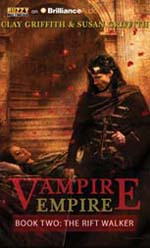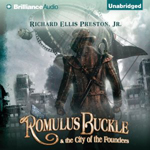
 Good Morning, Midnight
Good Morning, Midnight
By Lily Brooks-Dalton; Narrated by John H. Mayer and Hillary Huber
Publisher: Random House Audio
Publication Date: 9 August 2016
[UNABRIDGED] – 8 hours, 39 minutes
Themes: / post-apocalypse / apocalypse / arctic / astronaut / science / literary /
Publisher summary:
At the same time, Mission Specialist Sullivan is aboard the Aether on its return flight from Jupiter. The astronauts are the first human beings to delve this deep into space, and Sully has made peace with the sacrifices required of her: a daughter left behind, a marriage ended. So far the journey has been a success. But when Mission Control falls inexplicably silent, Sully and her crewmates are forced to wonder if they will ever get home.
As Augustine and Sully each face an uncertain future against forbidding yet beautiful landscapes, their stories gradually intertwine in a profound and unexpected conclusion. In crystalline prose, Good Morning, Midnight poses the most important questions: What endures at the end of the world? How do we make sense of our lives? Lily Brooks-Dalton’s captivating debut is a meditation on the power of love and the bravery of the human heart.
The premise is appealing. I have a fondness for cold and hard distant landscapes. The arctic and space is ripe and powerful for story. Lily Brooks-Dalton writes a strong opening and a heck of an ending. It is a successful ending as it turns me inward. I am still thinking about… well, no spoilers.
I felt Sullivan’s narrative thread was stronger and better written. As character, she is more round and engaging than Augustine, at least for me. Most of my complaints are founded in my own study of writing and story, and may not be fair or interesting to the general reader. As characters go, Augustine was a disappointment, but Sullivan and her crewmates more than compensated. As noted, I felt the beginning and ending was especially well crafted, but the middle seemed to lag, and the writing here didn’t feel as refined. This leads me to my biggest bug, and this is pacing. I felt that too much of this story was back on its heels, and while this certainly can be metaphor to mirror an inward introspective sense of self and life and universe, at times this slowness pulled me from story. I also would have appreciated a deeper excavation of setting.
Audiobook:
This has two narrators, one for each story thread. John H. Mayer handles Augustine’s portion, and Hillary Huber takes care of Sullivan’s. I usually dislike more than one narrator, as I feel it runs the risk of getting in the way of what is being read, but this was handled quite nice, and I have no real complaints about the decision to use two readers. Both Mayer and Huber were pleasing and I found each voice suited the character. My only issue came with Huber’s accents. There is a South African, Russian, and an American Midwest accent that are rendered a tad dramatic. I think we can agree that this is a small thing, but it still kind of bugged me, and pulled me out of the moment.
This is a solid 3.5 out of 5, and I think if I weren’t so hyperaware of craft and story as story for story’s sake, I’d probably nail a 4 out of 5 on this book. In short, this is a fine book, and if you are at all interested by what this seems to be about, I think you’ll genuinely like it, a lot.
 The Kingmakers (Vampire Empire #3)
The Kingmakers (Vampire Empire #3) Sand: Omnibus Edition
Sand: Omnibus Edition The Rift Walker (Vampire Empire #2)
The Rift Walker (Vampire Empire #2) Metro 2033
Metro 2033 Romulus Buckle & the City of the Founders (Chronicles of the Pneumatic #1)
Romulus Buckle & the City of the Founders (Chronicles of the Pneumatic #1)